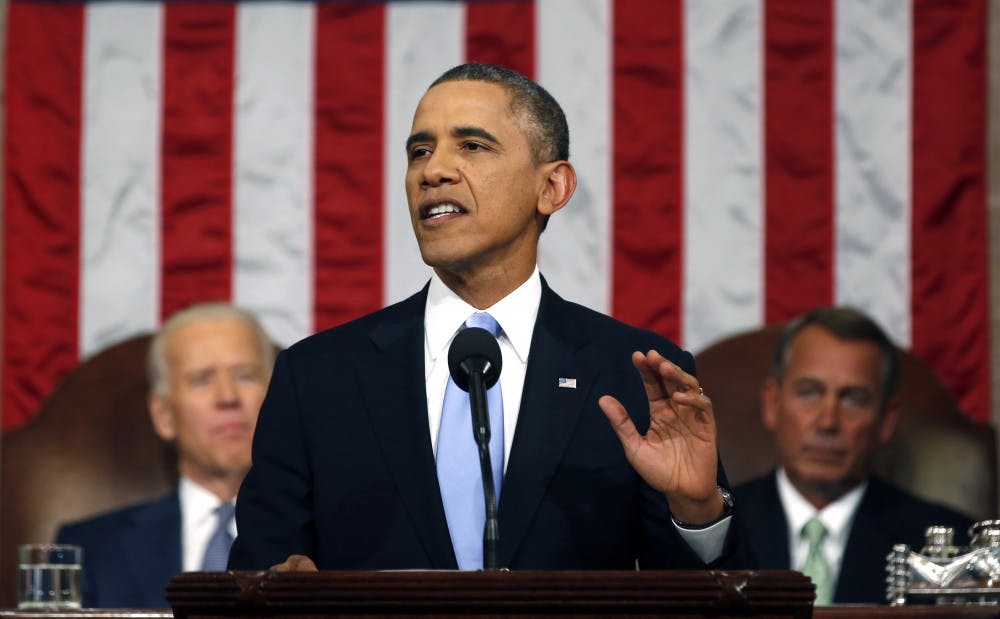By Roman Orsini
Staff Writer
President Obama delivered the 2015 State of the Union Address before the newly Republican-led Congress on Tuesday, Jan. 20. The main thrust of the address centered on proposals aimed at improving America’s economy. Obama also spoke to the threat of Islamic State terrorism in the Middle East and Russia’s meddling in the ongoing Ukrainian conflict.

Obama described 2014 as a breakthrough year for the U.S. in which increased energy production and reduced unemployment had contributed to a return of economic normalcy.
In keeping with positive economic trends, Obama’s initiatives target middle-class families in particular. Raising the minimum wage and providing childcare, funded by closing tax loopholes, which benefit the wealthy, are part of what Obama called, “middle-class economics.”
Middle-class economics, “means helping working families feel more secure in a world of constant change,” Obama said, along with building the most competitive economy to attract growth. Obama also introduced plans to guarantee workers seven days of paid sick leave, expand the availability of the Internet and a project to improve America’s infrastructure.
The President spoke of the 21st century economy and the premium it places on knowledgeable workers with greater skills. He pointed to increasing rates of college graduation as a positive trend. Yet, as this new economy demands more college graduates, many students are priced out of higher education or take on debt to afford it. Obama plans to provide two years of free community college — to help the 40 percent of students who enroll in them — while reducing the burden of existing student debt for college graduates.
On the nation’s foreign policy, Obama said we are most influential when we combine our diplomatic and military power and build coalitions to resolve disputes. He pointed to Russia’s increasing diplomatic isolation and economic decline as a testament to this power, applied to curb Russia’s ambitions in Ukraine. In East Asia, coalitions have also been formed to uphold trade law and settle maritime disputes between neighbors.
In Syria, the U.S. is supporting moderate rebel groups and coordinating with other Arab governments in the fight against the Assad government. Terrorist networks like ISIS are continuing to be dismantled and degraded. Obama said he will ask Congress for a formal resolution to wage war on the ISIS, as well.
Obama advocated for continued negotiations with Iran to prevent that country from developing nuclear weapons — averting another costly war in the region. Any new sanctions on Iran would be vetoed, as they might derail the ongoing talks, making a diplomatic solution less viable.
“That’s how America leads, not with bluster, but with persistent, steady resolve,” Obama said.
For the last two years of the his presidency, Obama will face resistance from a Republican dominated Congress, largely opposed to his agenda. Many of his domestic policies, in particular, may never be fully realized.







